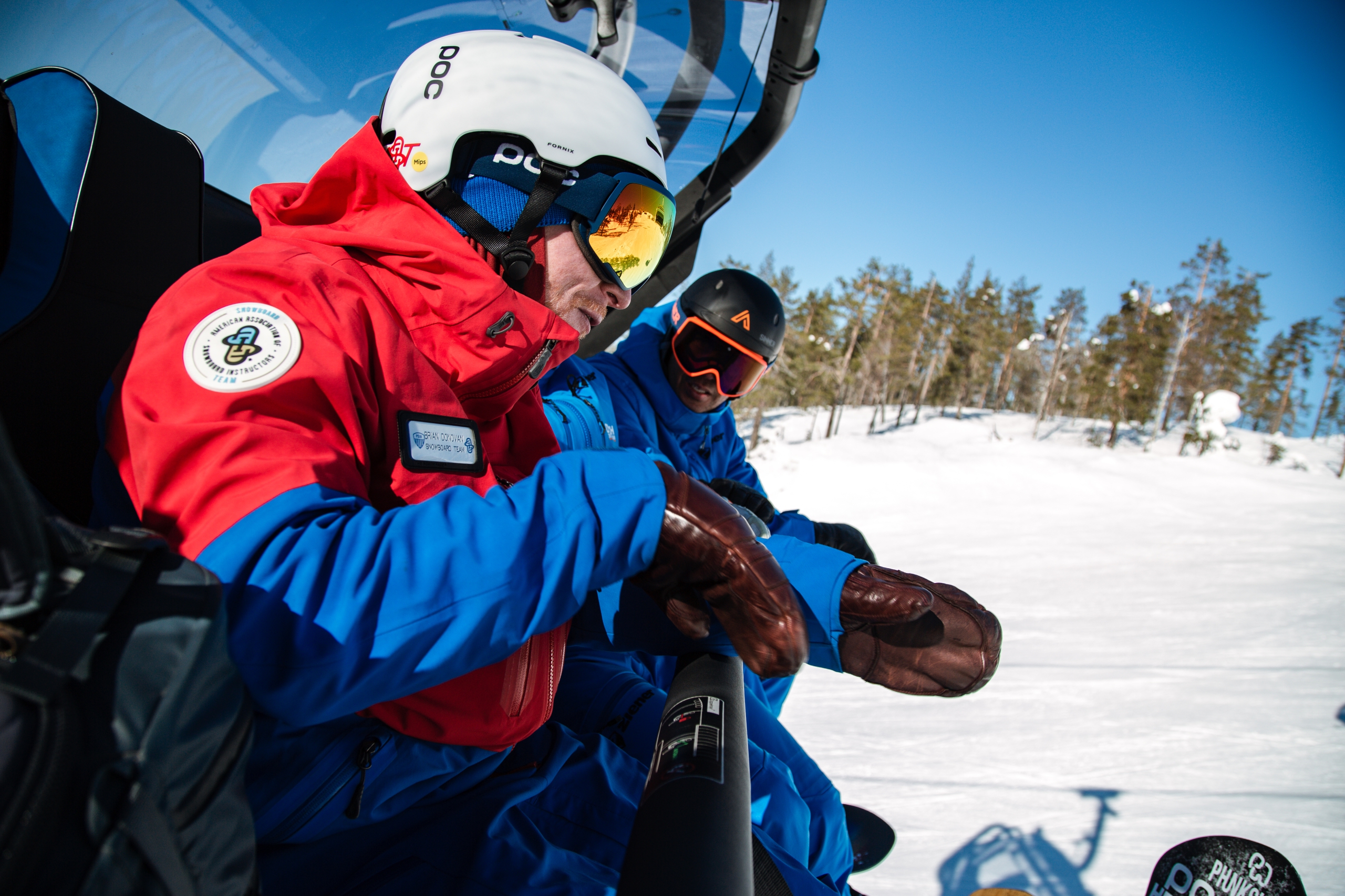Interski 2023: Ski and Snowboard Takeaways from Argentina
Held every four years, Interski brings instructors together from around the world. The event offers a valuable educational opportunity for snowsports educators to share their innovations and core beliefs. It gives PSIA-AASI, through its national team, an opportunity to compare the American Teaching System with educational approaches of other countries and bring home ideas that help PSIA-AASI members improve and evolve.
Here, PSIA Alpine Team member Dustin Dyar and AASI Snowboard Team member Brian Donovan share their top takeaways from the individual workshops they took with Argentina.
Dustin Dyar’s Top Takeaways
Argentina used elastic exercise bands to help create proprioceptive awareness with body movements to create more accurate ski or body performance. They placed these bands around our legs. They were meant to be stretched apart to create accurate use of the inside leg while skiing.
The bands were also stretched across the back from hand to hand to create stabilization of the upper body and arm frame. Then two bands were stretched from boots to shoulders, crossing the body to create awareness of flexion and extension from turn to turn.
I discovered the band can also get in the way of movements and disrupt the skier from turn-to-turn.
Argentina used thick exercise bands to create resistance to help the skiers develop kinesthetic and proprioceptive awareness.
The bands create great concrete external focuses for learning and are a great tool to touch all three skill pools. They can help instructors improve their skiing and stability and also help by providing instant feedback to the student.
Brian Donovan’s Top Takeaways
Argentina has a system for identifying motor skill development that has three stages:
- The Exploratory Stage, signified by hearing, looking, and doing.
- The Concentration Stage, signified by having a complete image of the goal in your mind.
- The Automation Stage, signified by having a spontaneous process of actions.
The Argentinian Team had everyone ride switch and put foam blocks into their bindings to make board control difficult without ankle straps. They also used other props and activities to simulate the beginner snowboard experience.
During the workshop, the Argentine instructors created a lot of simulated activities and exercises that simulated poor snowboard performance, and they related what we were experiencing back to their stages of motor skill development. The activity encouraged us participants to recognize these issues with our students.
They developed this prop and activity system to monitor their students motor skill development and training instructors to remain cognizant of these stages of learning. The workshop focused on beginner lesson performance issues, and we discussed having empathy for our students due to the experience of learning.
The clinic related to PSIA-AASI’s teaching approach in that being aware of our student’s fears and having empathy for them relates to people skills, as well as adapting lessons to meet the needs of the student.







